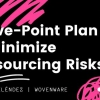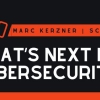Piotr Zygula is the President and CEO of JCommerce SA, a Polish IT outsourcing provider specialising in custom software development. He's also, now, the latest participant in our Life Lessons interview series: Q&As featuring set questions designed to showcase learnings from the careers of sourcing and outsourcing professionals from around the world and across the space. Everyone ready to learn? Then let's proceed...
What has been the single most significant development to impact your profession or area of business during your career, and why?
It’s difficult to point out one single thing that has had a decisive influence on the development of the ICT industry, although generally it is certainly the constant development of technology that continues to transform the industry. However, from my personal point of view, both in terms of the industry as a whole and JCommerce in particular, it was definitely the crisis years of 2008-2009, when the market, technologies and solutions were verified significantly. It was a difficult experience, but in retrospect I know that it allowed us to catch our second wind, and look at the business differently than before, this time from a more operational perspective. Paradoxically, the crisis opened a window of opportunity for us to stretch our wings.
Similarly, what one factor has most profoundly changed the way you personally work since your first day in your first job?
For sure it was largely the start of my running adventure. Training for a marathon is a reliable school of self-discipline, perseverance, the pursuit of goals, which are some of the essentials in business as well. Running helped me make a lot of interesting business contacts. It turned out that almost the entire business world runs. Literally. At marathons in Helsinki, Cologne, Brussels, Stockholm and Budapest, I had the opportunity to meet with clients, and to run with them, in their company colours as well, which gave me the chance to solidify some valuable business relationships.
What’s the biggest challenge facing your industry today – and how would you solve it?
The dynamic development of the ICT sector means huge demand for specialists. A lot of new business initiatives and startups have been created, and this causes shortages, as good employees are in red-hot demand. But above all the real problem is not the lack of staff, but the quality, and the value for money which they offer. We now have to deal with competition for candidates, which benefits a lot of people that do not necessarily have the relevant competencies, which affects the projects as a whole. So it seems to me that better education, better business practices, so generally a change in the way of thinking within the industry, is the biggest challenge that we must now face up to.
Who has been the most influential figure in your professional life, and why?
With a clear conscience I can say it was my father. In the early '90s, after the political changes in Poland and the creation of a free market, he started his own business. This whole transformation, the economic changes and the development of his company came during my teenage years, but strongly influenced my attitude towards what I want to do and how I wanted to develop my career. And from the beginning I never looked back - I would say that even with such non-standard bravado, which sometimes ends in failure, my father always had my back, and I could always count on him. Especially at the beginning, during my education, he allowed me to develop, to fulfill my passion, without pressuring me or interfering, because he assumed that the young do everything their own way, and they know best.
What’s the biggest mistake, work-wise, you’ve ever seen – and what were the consequences?
In reality, business means constantly making mistakes, whether minor or major, and learning from them. Ultimately, it is the CEO who has to make some decisions, really often without sufficient data. You have to trust your intuition. Sometimes it's a question of luck, and sometimes it’s more about well-thought-out strategy. But really, you can never quite predict what the final consequences of a given decision will be. And as is usually the case, success has many fathers and failure is an orphan. So I don’t want to judge the mistakes of others, because I do not know the details, the conditions, the motivation behind it all.
What do you consider to be your greatest achievement career-wise?
I hope I haven’t had it yet... But most of all I enjoy everyday business successes. Recently, for example, a customer from Germany came to us with a very urgent project: they needed a development team ASAP. At first it seemed impossible to arrange, there just wasn’t enough time, it was simply unrealistic. But thanks to our quick response and the dedication of our employees, within the space of a week we managed to create a complete Agile team using Scrum methodology, and after two weeks the team was ready to take on the project and head over to the customer.
What’s your biggest (as-yet) unfulfilled ambition – and are you going to achieve it?
My career has thus far been focused on the area of B2B services, but it would be the fulfilment of an ambition to achieve success in the B2C segment, so to create a product or service that would go viral and achieve popularity, attracting a large number of users, customers or fans. In B2B relationships, consistent actions are crucial, creativity less so. Success in the creation of services or products for individual customers, measured by entirely different criteria, is certainly a big challenge. As regards implementation, the creation of a separate R&D department may come into play, or even a brand new company that could deal with this type of project. The subject, however, is still open.
What three words do you think your colleagues and peers would use to describe you?
For sure "stubborn", but also "full of ideas", and "optimistic".
Finally, what piece of advice would you give your younger self at the very start of your career?
Every day, business brings with it so many surprises and is so dynamic that any such advice probably wouldn’t work. By contrast, there are definitely some business rules that are applicable regardless of the industry, market, sector or level of development of the firm. For sure a realistic business plan, cost control, the knowledge that the product, service, solution, or business should primarily be of measurable value to the customer and that the customer is most important here, and not blind faith that we have a great product that people will buy. And the second important issue is to focus on the core of the business, on its key areas. If you have, for example, an insurance company, focus on selling insurance, and other processes, such as legal services, IT or HR, should be outsourced. There is no point spreading oneself too thin: concentrate all your energy on the most important area of activity from the point of view of the company. Do you think you – or someone you know – would make a good subject for future instalments of Life Lessons? Contact hcorr@sig.org for more information…







